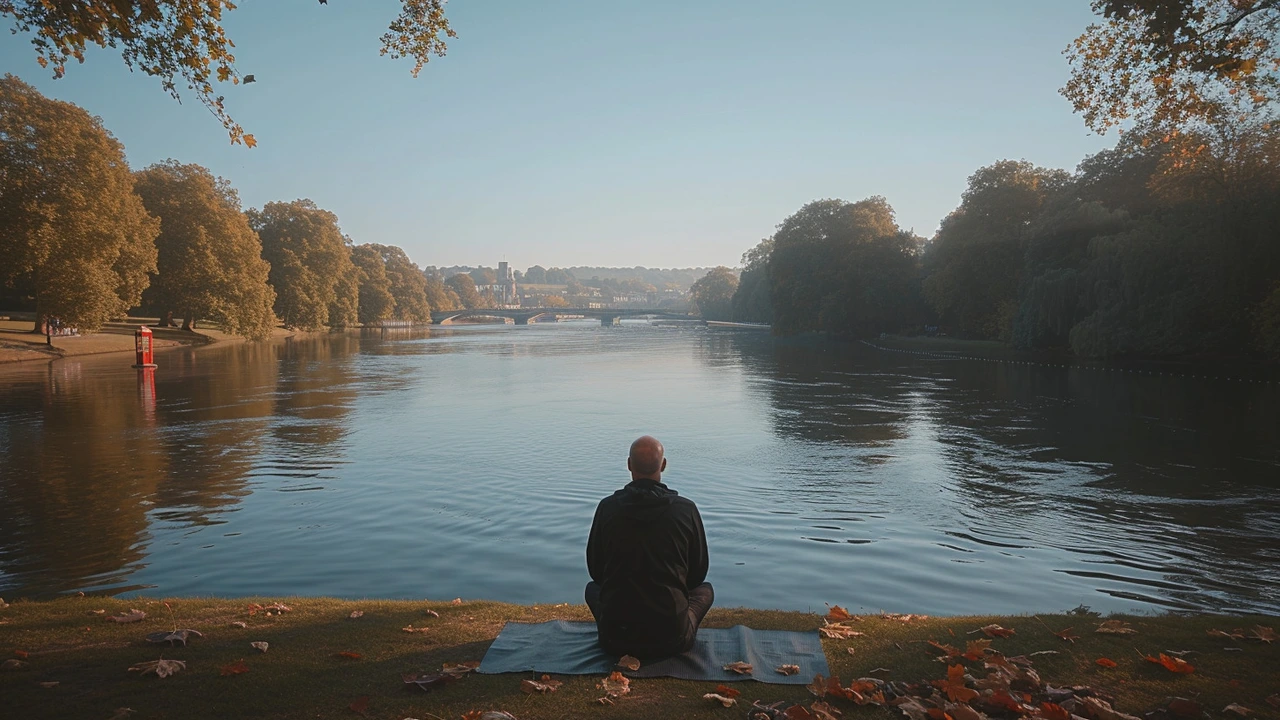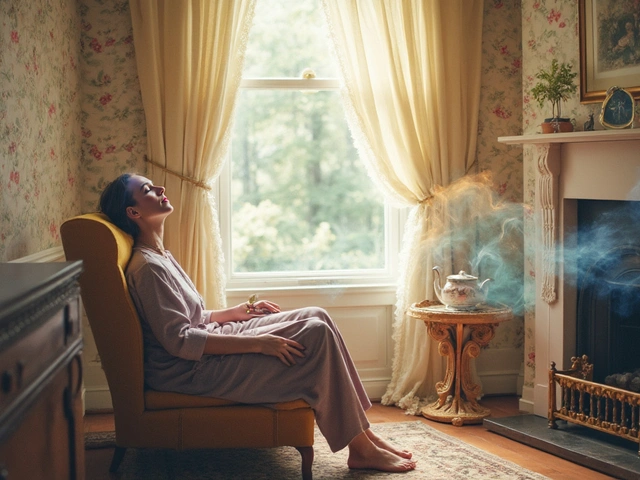
Understanding the Link Between Calmness and Anxiety
Anxiety often feels like a relentless wave, sweeping over us without warning. In contrast, calmness is the ground beneath our feet, offering stability and peace. It's no secret that these two states of being can profoundly impact our mental health. When we're anxious, our body goes into a 'fight or flight' mode, a primitive response that, while useful in actual danger, can be debilitating when triggered by day-to-day stressors. Calmness, on the other hand, activates the body's 'rest and digest' system, promoting healing and relaxation. This duality forms the core of why cultivating calmness is not just beneficial but necessary for our well-being.
Beyond the immediate relief, embracing calmness transforms our overall perception of stress. It equips us with tools to approach challenges with a steadier hand, transforming potential anxieties into manageable tasks. Science supports this shift, showing that regular practice of calming techniques can rewire brain pathways, leading to long-term reductions in anxiety levels. This realization opens up a pathway to a more serene life, marked by an inner stillness that can weather any storm.
Practical Techniques for Cultivating Calm
So, how does one begin to cultivate this serene state? Techniques abound, but key among them is mindfulness meditation. By focusing on the present moment, without judgment, we train our minds to remain centered amid chaos. Regular practice diminishes the tendency to get caught up in worries about the future or regrets about the past, common triggers for anxiety. It's like building a mental muscle, the more you do it, the stronger your capacity for calm becomes.
Deep breathing exercises offer another powerful tool. By slowing down our breath, we send a signal to our brain that it's time to relax. This not only eases the physical symptoms of anxiety but also helps to clear the mind, making space for a more peaceful outlook. Yoga and tai chi, with their emphasis on gentle movement and breath control, further support this calming effect, promoting a harmony between body and mind that anchors us in tranquility.
The Role of Lifestyle in Maintaining Calmness
Lifestyle choices play a significant role in our ability to maintain calm. Diet, exercise, and sleep, often referred to as the 'trifecta' of physical health, are equally crucial for mental health. Consuming a balanced diet rich in omega-3 fatty acids, magnesium, and vitamins has been shown to lower anxiety levels. Regular physical activity, meanwhile, releases endorphins, nature's stress-relievers, promoting a natural state of calm. And when it comes to sleep, quality trumps quantity. Establishing a calming bedtime routine can significantly improve the quality of rest, providing the foundation for a calmer day ahead.
But it's not just about what we do; it's also about what we don't do. Limiting exposure to stressors, such as excessive news consumption or toxic relationships, can markedly reduce anxiety levels. Equally, setting boundaries around work and technology use in the evening can help maintain a serene state of mind. It's about creating an environment, both internally and externally, that supports rather than undermines our peace of mind.
Understanding the Science Behind Calmness
Delving into the science, calmness doesn't just feel good; it's good for us. When we're calm, our body releases a cocktail of chemicals, including serotonin and oxytocin, which promote feelings of well-being and happiness. On the flip side, chronic anxiety can lead to an overproduction of cortisol and adrenaline, setting the stage for a range of health issues, from high blood pressure to decreased immunity. By nurturing calm, we're not just soothing our minds; we're safeguarding our physical health.
But the benefits go deeper still. Research suggests that calm individuals often experience better relationships, enhanced creativity, and increased problem-solving abilities. It seems that when we're not constantly in a state of fight or flight, we open ourselves up to richer, more nuanced experiences of the world. This shift not only enhances our own lives but can also positively influence those around us, creating a ripple effect of calm in a sea of chaos.
Incorporating Calmness into Your Daily Routine
Making calmness a staple of your daily routine might seem daunting, but it's surprisingly accessible. Start small, with five minutes of meditation or deep breathing exercises each morning. Gradually increase this time as you become more comfortable. Incorporate moments of mindfulness throughout your day, such as paying full attention to your meal or taking a mindful walk, fully engaging with your surroundings. Over time, these practices will become second nature, forming the bedrock of your serenity.
It's also helpful to create calm-inducing spaces in your environment. The ancient practice of feng shui, for example, emphasizes the importance of harmonious surroundings for cultivating a peaceful state of mind. Simple changes, like decluttering your living space or adding elements of nature, can significantly enhance your sense of calm. These physical changes, in turn, support the mental shift towards a more tranquil state of being.
Overcoming Obstacles to Calmness
Of course, the path to calmness isn't always smooth. We're bound to encounter obstacles, whether internal, like a tendency towards worry, or external, such as unexpected life stressors. Recognizing these challenges as part of the journey is vital. Rather than viewing them as failures, see them as opportunities for growth. Each time you navigate a difficulty with grace, you reinforce your capacity for calm.
Sometimes, the best approach is to embrace the anxiety. This doesn't mean surrendering to it, but rather acknowledging its presence without judgment. By doing so, we rob anxiety of its power, making room for calm to enter. Support from a therapist or counselor can be invaluable in this process, providing tools and techniques to manage anxiety more effectively.
The Enduring Power of Calmness
In the end, cultivating calmness is an ongoing journey, not a destination. It's about finding peace within ourselves, regardless of the external chaos. This inner sanctuary becomes a source of strength and resilience, enabling us to face life's challenges with equanimity. Remember, calmness is not the absence of stress but the ability to navigate it with grace and composure.
As we weave these practices and insights into our lives, we not only reduce our anxiety but also enrich our experiences, relationships, and overall quality of life. The power of calm is transformative, offering a beacon of light in a world often shrouded in shadows. It's a journey well worth embarking on, promising a destination of profound peace and well-being.





